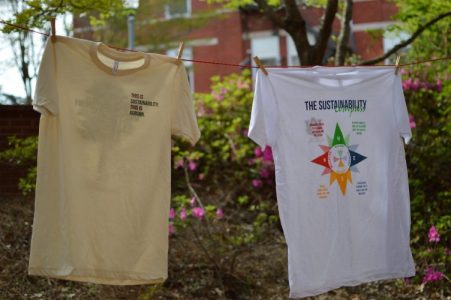“Do what you can, with what you have, where you are.” Theodore Roosevelt
Climate change. The Zika virus. Terrorism. These are complex global issues. As individuals it can seem like there is not much we can do about them. Actually, there are things we can do like informing ourselves, changing how we do things, and holding elected officials accountable for crafting positive, workable solutions. Still, these are big problems and it’s hard to see the results of our individual actions.
But there are things we can do in our own personal spheres that are measurable and meaningful. Things matter even though they may seem insignificant. They matter because we are far more interconnected than we realize, which means that our intentions and actions have a ripple effect beyond what we perceive. Our actions reverberate out into the world.

When planning any event or get-together, you and your group can have a positive impact at any compass point.
By simply paying attention and being intentional we can have a positive impact no matter what we are doing, from mundane daily routines to special occasions.
Its fall: football Saturdays; parties; get-togethers; events. These fun times can be more sustainable too. All it takes is a few thoughtful decisions. For example, when it comes to tailgating we can pay attention to:
- What we eat: The Beatles sang “You know that what you eat, you are….” What we serve and consume can be delicious, nutritious, and supportive of local businesses. Shopping where we can get local, organic, fresh, high-quality food nourishes us and keeps dollars in our community.
- What we eat with: plates, cups, utensils. Our society is so used to throwing things away that we don’t think twice about it. But what a waste! We can-practice reduce and reuse. The best option is using our own reusable dishes and utensils. If that’s not a viable option we can use items that are compostable, that can become food for next year’s tomatoes, for example.
- What we do when we are done: leave nothing behind! We can demonstrate what “I believe in Auburn, and love it!” looks like in practice as it relates to our formal and informal events: recycle recyclables; compost the compostables; wash the reusables; any food that’s left may be fit to share with others; anything else that’s left gets properly placed in a waste receptacle.
- How we treat each other: with kindness and respect; we can be generous and thoughtful, respectful and considerate toward all living things and the Earth itself.
All this is actually quite easy, not that it has to be easy to make it worth doing. These things just happens to be worth doing and easy too. And they make a difference.





As it relates to sustainability, recycling is a very basic behavior all AU units should develop. As a parent of an AU student, I must say that while recycling options seem to be in place on campus (thank you) drop off locations for those living off campus are few and far between. What can I do to help?
We wholeheartedly agree that recycling is a very basic responsible behavior that the entire Auburn Family can easily embrace. The City of Auburn has a full-service drop off facility on N. Donahue, just past Bragg Avenue and on the west side of the road. This facility will accept plastics #1 and #2, paper, cardboard, green, clear, and brown glass, aluminum cans, scrap metal, steel cans, batteries, waste cooking oil and it is even possible to drop off electronics if it is coordinated with them ahead of time. At present the City of Auburn does not pick up recyclables from apartment complexes.